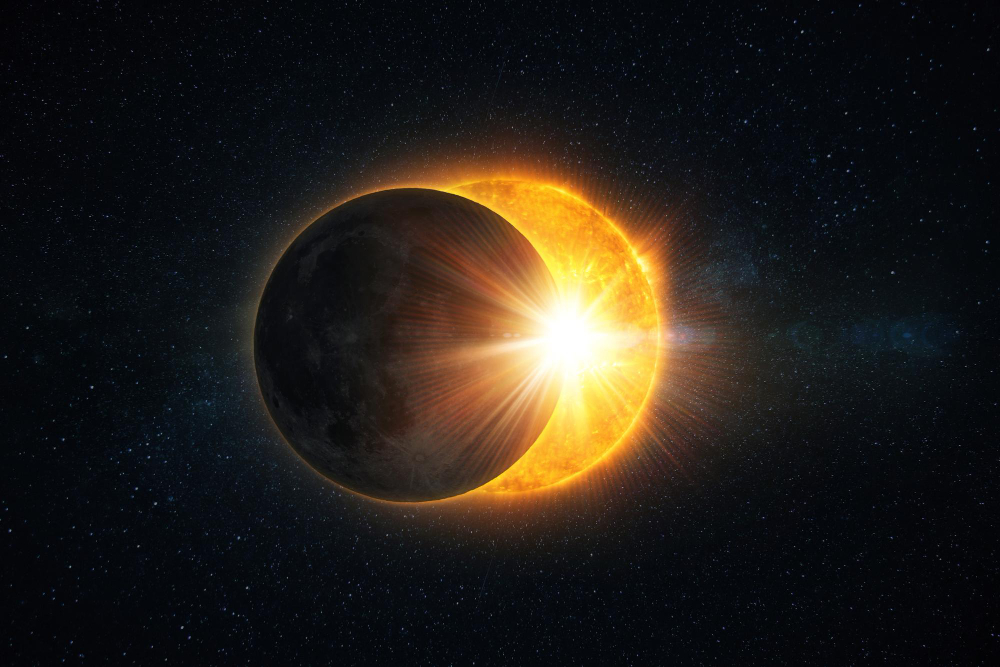
Imagining a Solar Eclipse Inspired Stageplay
Solar eclipses have captivated human beings for centuries. These rare celestial events have inspired many films, novels, and even music. However, the drama and wonder of a solar eclipse can also provide the perfect inspiration for a stageplay.
The Inspiration of Solar Eclipses
There’s something truly magical about the way a solar eclipse unfolds. The gradual dimming of the light, the eerie silence that descends upon the landscape, and the sudden appearance of the sun’s corona are all elements that can create a powerful and emotional experience for an audience.
For filmmakers, the visual spectacle of a solar eclipse has been an endless source of inspiration. From the intense horror of “The House of the Devil“ to the mysterious allure of “The Watcher in the Woods,” solar eclipses have played a significant role in many cinematic classics.
Creating a Stageshow Inspired by Solar Eclipses
The idea of a stage show inspired by a solar eclipse might seem daunting, but with a little creativity, the possibilities are endless. Here are a few ideas for any budding playwrights out there:
The Power of the Eclipse
One of the most compelling aspects of a solar eclipse is the way it seems to alter the world around us. Use this idea as the basis for a play that explores the transformative power of the eclipse. Perhaps your characters are all affected by the eclipse in different ways, or maybe they are searching for some kind of epiphany that only the eclipse can provide.
The Science of the Eclipse
Solar eclipses are also a fascinating subject from a scientific perspective. Use this angle to create a play that explores the mechanics and mystery of the eclipse. Your characters could be scientists studying the eclipse, or they could be amateur astronomers who stumble upon something unexpected during the event.
The Mythology of the Eclipse
Throughout history, solar eclipses have been shrouded in mystery and mythology. In many cultures, they were seen as powerful omens or events of great significance.
One of the most famous examples of eclipse mythology comes from ancient China. According to legend, a solar eclipse occurred during the reign of Emperor Zhong Kang in 2136 BC. The emperor’s court astronomer, Hsi and Ho, had failed to predict the eclipse, which was seen as a grave offence. As punishment, the two were beheaded, setting a precedent for astronomers to accurately predict such events.
In Norse mythology, a solar eclipse was believed to be caused by the giant wolf Fenrir, who was said to have devoured the sun. According to legend, Fenrir will eventually break free of his chains and devour the sun once more, signaling the beginning of Ragnarok, the end of the world.
In Hindu mythology, the demon Rahu is believed to swallow the sun during eclipses. According to legend, Rahu was once a powerful demon who tried to gain immortality by drinking the elixir of life. However, he was caught by the gods and beheaded before he could complete the task. As a result, his head became immortal and was placed in the sky as a warning to others.
In many cultures, solar eclipses were seen as powerful omens or warnings. In ancient Greece, for example, an eclipse was seen as a sign of the gods’ displeasure, while in Mayan culture, it was believed that the sun god was angry and had to be appeased.
What next?
Solar eclipses have captured our imaginations for centuries, inspiring everything from films to music. By tapping into the drama and wonder of these celestial events, a stage show inspired by a solar eclipse has the potential to be a truly unforgettable experience for audiences. So why not take the plunge and create your own eclipse-inspired masterpiece?






